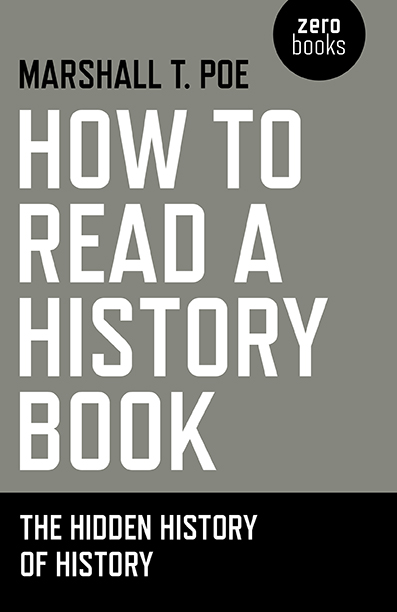How to Read a History Book
How to Read a History Book explains who writes history books, how the writers are trained, and why they write them.

How to Read a History Book explains who writes history books, how the writers are trained, and why they write them.
How to Read a History Book explains who writes history books, how the writers are trained, and why they write them.
Historiography, History, Study & teaching
A deconstruction of the modern history book as artifact, How to Read a History Book explains who writes history books, how the writers are trained, and why they write them. It also discusses genre, bias (political and otherwise) and how to read history books between the lines.
Written for undergraduates, intro graduate students and anyone with an informed interest in the subject, How to Read a History Book demonstrates that, rather than being objects that fall from the sky, history books are actually socially-constructed artifacts reflecting all the contradictions of modern meritocratic capitalism.
Click on the circles below to see more reviews
This book introduces the reader in an easy and understandable way into the genre of history books. Through fictional stories and examples, it becomes clear what difficulties historians encounter when writing such books. It also details the function of key components of history books. The book is valuable in giving readers tools to look at history books in a more critical and reflective way. This book is helpful for everyone who likes to read history books as well as students who want to have a deeper, reflective insight into this genre. ~ Brigitt Amthor, NetGalley
How To Read A History Book is a clever look at how academic works, and a comment on the way we perceive documentation and history. What stood out most to me about this book is the way I was able to reflect on my own academic work through the story shared here. And story was not what I expected at all. The narrative structure of the book proved to be a positive surprise. I would recommend this book to scholars, students, and anyone interested in reading about how "what we know" comes to be. ~ JD DeHart, NetGalley